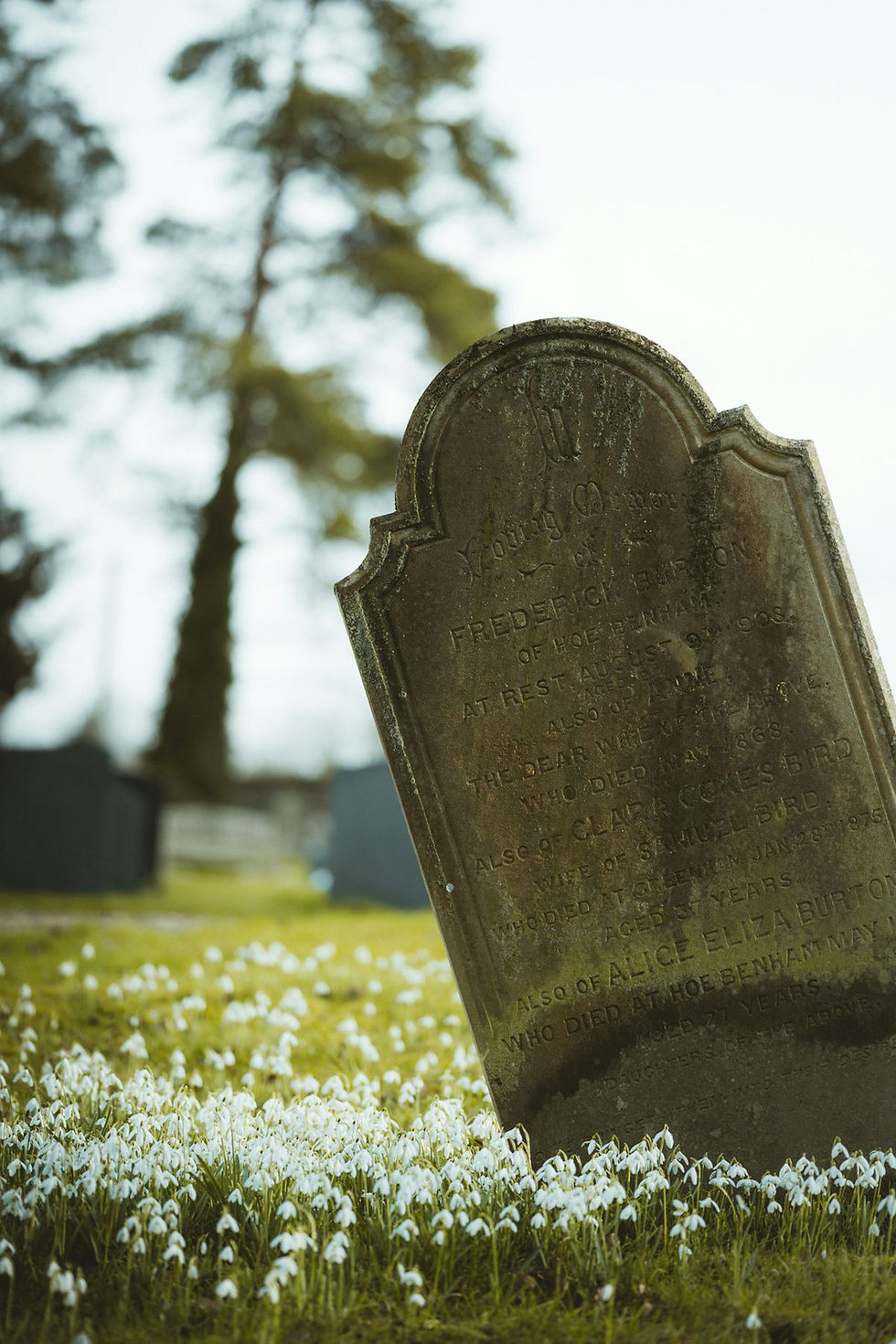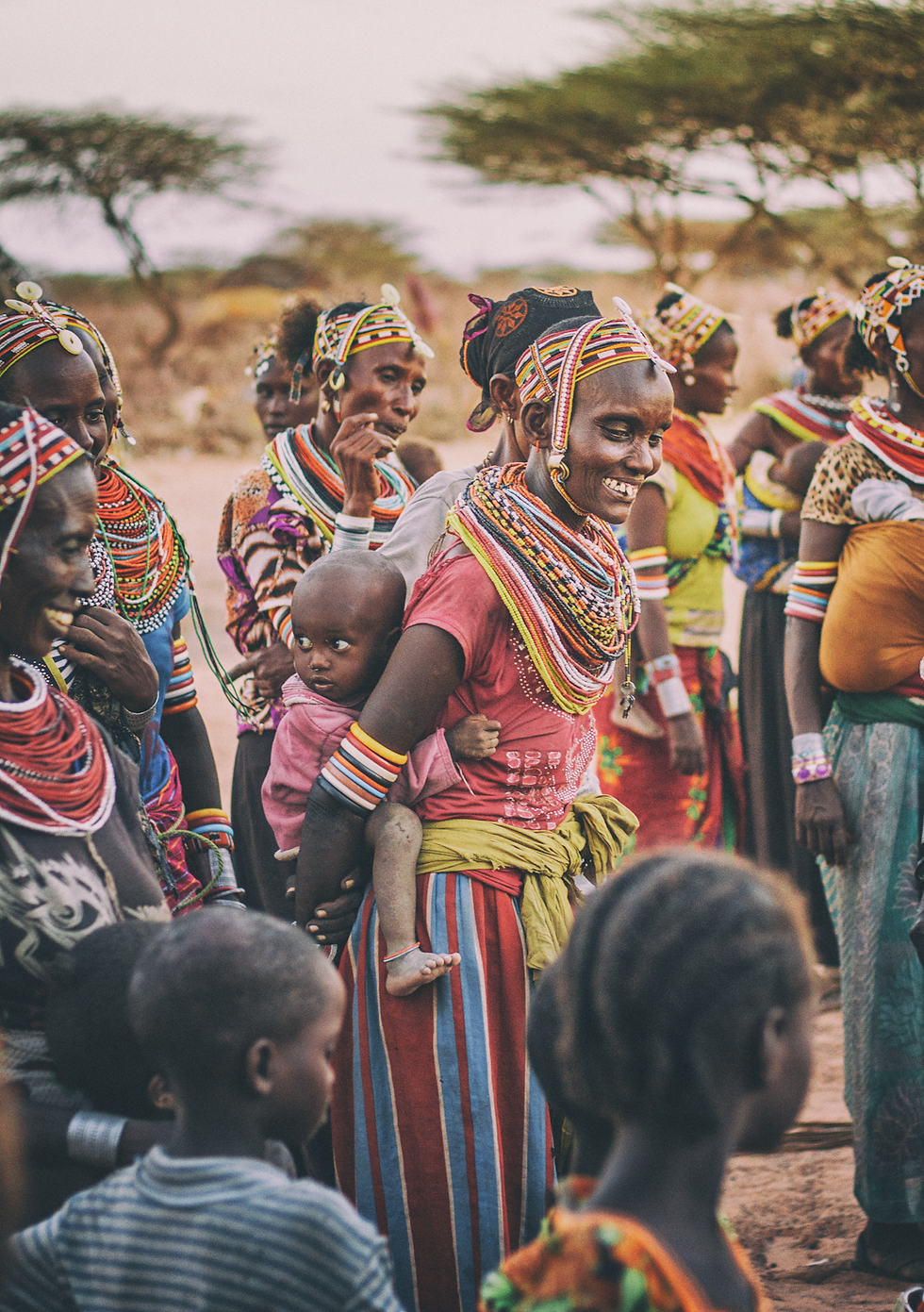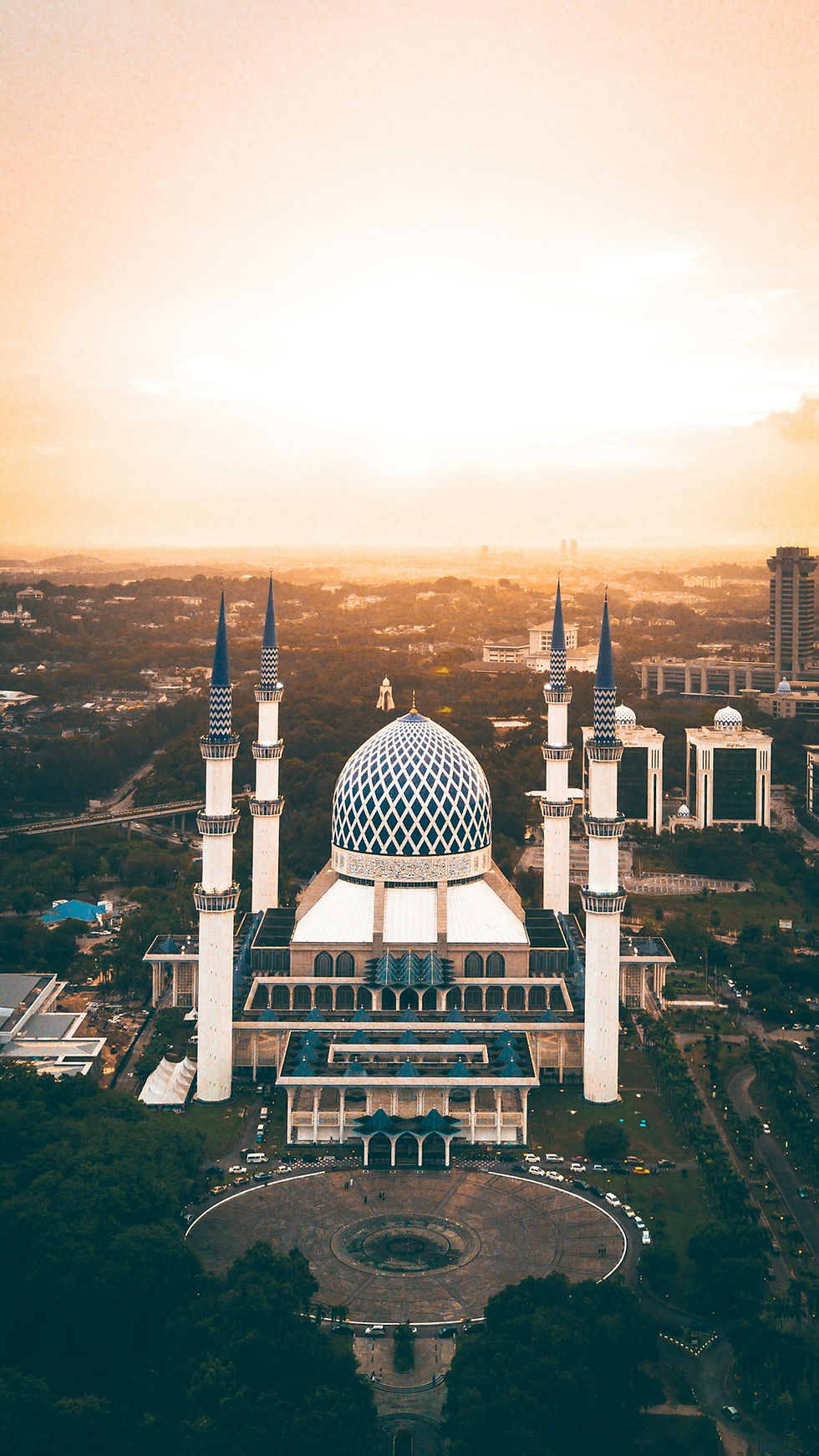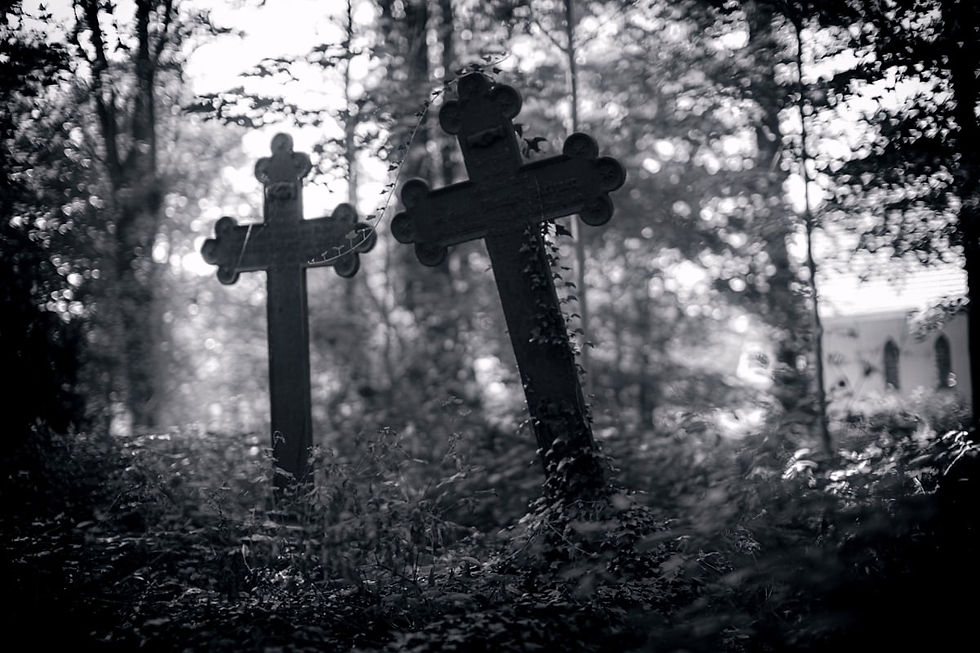Thanatophobia in Different Cultures: How the Fear of Death Varies Around the World
- Emma Calden
- 5 days ago
- 7 min read
Thanatophobia, or the fear of death, is a universal experience that transcends cultural boundaries. However, how it manifests and how individuals and societies address this anxiety can vary significantly from one culture to another. The fear of death is not just a psychological phenomenon but is also deeply entwined with cultural, religious, and spiritual beliefs. How different cultures view death and the rituals and practices surrounding it can play a significant role in shaping the experience of thanatophobia. This article delves into how various cultures approach the fear of death, and how different rituals, beliefs, and philosophical perspectives influence individuals’ experiences of death anxiety.
Thanatophobia in Western Cultures: Death as the Final End
In many Western cultures, particularly in countries like the United States and much of Europe, death is often viewed as a final and irreversible end. There is a prevailing cultural narrative that promotes individualism and the importance of personal achievement and legacy. This focus on the individual and their accomplishments can amplify the fear of death, as it is often seen as the end of one's existence and significance.

In these cultures, thanatophobia can manifest as a fear of non-existence, with individuals often struggling to find meaning in their lives in the face of inevitable death. The Western worldview tends to emphasize materialism, and there is a general lack of emphasis on the afterlife. Consequently, death anxiety can be particularly strong in secular societies where individuals may not find comfort in religious beliefs about life after death.
Rituals and Coping Mechanisms
In the West, death rituals tend to be formal and somber. Funerals are often conducted in a church or funeral home, and the dead are embalmed and placed in caskets. These rituals can create a sense of finality, reinforcing the fear of death. However, some individuals turn to therapy or engage in practices like mindfulness and meditation to alleviate death anxiety. The rise of existential therapy, for example, addresses the fear of death by helping individuals find meaning in their lives and come to terms with mortality.
Thanatophobia in Eastern Cultures: Reincarnation and the Continuity of Life
In contrast to the Western view, many Eastern cultures, particularly in countries like India, China, and Japan, view death not as an end but as part of an ongoing cycle. For instance, in Hinduism, death is seen as a transition rather than a final end, with the soul moving from one life to the next through reincarnation. This cyclical view of life and death reduces the anxiety associated with thanatophobia because death is not seen as a final separation from loved ones or as the loss of personal identity.
Rituals and Coping Mechanisms
In Hindu culture, death rituals are elaborate and centered around the concept of the soul's journey. Cremation is a key ritual, and the belief in reincarnation encourages people to view death as a transition to a new phase of existence. The practices of offering prayers and ceremonies for the deceased are meant to ensure a smooth transition for the soul, and the fear of death is somewhat mitigated by the belief in reincarnation.

Similarly, in Buddhist cultures, the cycle of birth, death, and rebirth (samsara) is central. The Buddhist approach to death involves meditation on impermanence and the idea that death is an inevitable part of the cycle of life. Death is viewed with acceptance rather than fear, and rituals such as chanting and prayer help the living and the dead to pass through this transition peacefully. The understanding of death as a natural process reduces existential fear and helps people prepare for the inevitable.
In Japan, Shintoism offers a similar perspective on death, focusing on honoring ancestors and maintaining a connection to the spiritual world. The belief in kami (spirits) who continue to exist after death can ease the anxiety surrounding death, offering a sense of continuity and connection.
Thanatophobia in Indigenous Cultures: Death as a Return to the Spirit World
In many indigenous cultures, death is not viewed as an end, but rather as a return to a spiritual realm, and this view can significantly reduce death anxiety. Indigenous communities in Africa, the Americas, and Oceania often have rich spiritual beliefs that center on ancestor worship, the continuity of the soul, and the belief that the dead continue to influence the living world.
Rituals and Coping Mechanisms
For example, in various African cultures, death is seen as a natural and essential part of life. The spirits of ancestors are believed to live on, and death rituals are designed to help the living maintain a relationship with these spirits. Through rituals like offerings, dances, and songs, the living show respect for the dead, ensuring that they are honored and that their spirit is at peace.
In the indigenous cultures of North and South America, death is often seen as a continuation of the cycle of life. For instance, the Native American view of death is closely tied to nature and the spiritual world. The Navajo, for example, believe that death is a return to the Great Spirit. Their death rituals focus on purification and a peaceful transition to the spirit world, which alleviates the fear of death by emphasizing connection and continuity.
Similarly, in Maori culture in New Zealand, death is seen as part of the natural order, and ancestral spirits are believed to guide the living. Funerals and memorials are communal events that emphasize the ongoing connection between the dead and the living, reducing the psychological burden of thanatophobia.
Thanatophobia in African Cultures: Death as a Celebration of Life
In many African cultures, death is not feared but rather celebrated as a transition to the afterlife. The fear of death is often tempered by the belief that the deceased will continue to live on in another form. These cultures place great importance on community, and death is seen as an event that brings people together rather than separating them.

Rituals and Coping Mechanisms
The Akan people of West Africa, for example, believe that death is part of the cycle of life, and their funeral rites are intricate and elaborate. Funerals are not somber events but celebrations of the life of the deceased, with music, dancing, and feasting. These rituals reinforce the idea that death is not something to fear but something to honor and celebrate. For many in these communities, thanatophobia is minimized because the concept of death is intertwined with the belief that the deceased continue to live on in the spirit world, guiding and protecting the living.
Similarly, in many African cultures, ancestor worship is central to spiritual life. The dead are believed to continue to watch over the living, offering blessings, guidance, and protection. This belief creates a sense of continuity and connection, which diminishes the fear of death.
Thanatophobia in Islamic Cultures: The Afterlife and Submission to God's Will

In Islamic cultures, death is viewed as a transition from this life to the afterlife. The fear of death is tempered by the belief that life on Earth is temporary and that the true, eternal life is in the afterlife. Muslims believe that when they die, their soul enters a new stage of existence, either in paradise or hell, depending on their deeds and faith.
Rituals and Coping Mechanisms
Islamic funeral rites are deeply spiritual and centered around submission to God's will. The deceased are washed, shrouded, and buried as quickly as possible in a simple grave. The act of burying the dead is considered an act of humility, acknowledging that death is part of God's plan. These rituals offer comfort to the living, as the focus is on the soul's journey to the afterlife rather than the finality of death.
The Quran teaches that death is a natural part of life, and individuals are encouraged to live righteous lives to ensure a favorable afterlife. This belief helps to mitigate death anxiety, as Muslims view death as a transition to a better existence rather than an end.
Thanatophobia in Secular or Non-Religious Cultures: A Rational Approach to Death
In secular or non-religious cultures, death is often viewed through a more rational or scientific lens. Many individuals in these cultures may not believe in an afterlife, leading to a more existential approach to death. For some, the fear of death is heightened by the belief that death is the absolute end, and that consciousness simply ceases to exist.
Coping Mechanisms
In secular societies, individuals may cope with thanatophobia by focusing on the importance of living in the present moment. Mindfulness practices, such as meditation and reflection on the impermanence of life, can help reduce anxiety about death. In some cases, existential therapy is used to help individuals find meaning and purpose in their lives despite the inevitability of death.
For others, the fear of death is mitigated by a focus on leaving a legacy or making a positive impact on the world. The desire to be remembered or to contribute to society can provide a sense of purpose, reducing existential anxiety.
Conclusion: Thanatophobia in Different Cultures
Thanatophobia is a universal experience, but the way it is perceived and managed varies widely across cultures. Cultural beliefs, religious practices, and spiritual perspectives all influence how individuals approach death and deal with the anxiety that comes with it. While some cultures view death as a transition or a natural part of life, others focus on rituals and traditions to ensure a peaceful and respectful departure from this world.
Understanding how different cultures approach thanatophobia provides valuable insights into the diverse ways humans cope with mortality. Whether through belief in the afterlife, connection with ancestors, or rational acceptance, cultures around the world offer various pathways to address the fear of death. By learning from these cultural practices, individuals can find comfort and meaning in their own lives, reducing the impact of death anxiety and embracing the inevitable cycle of life and death.
.png)










































